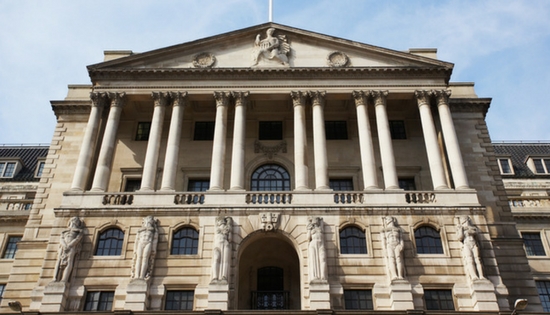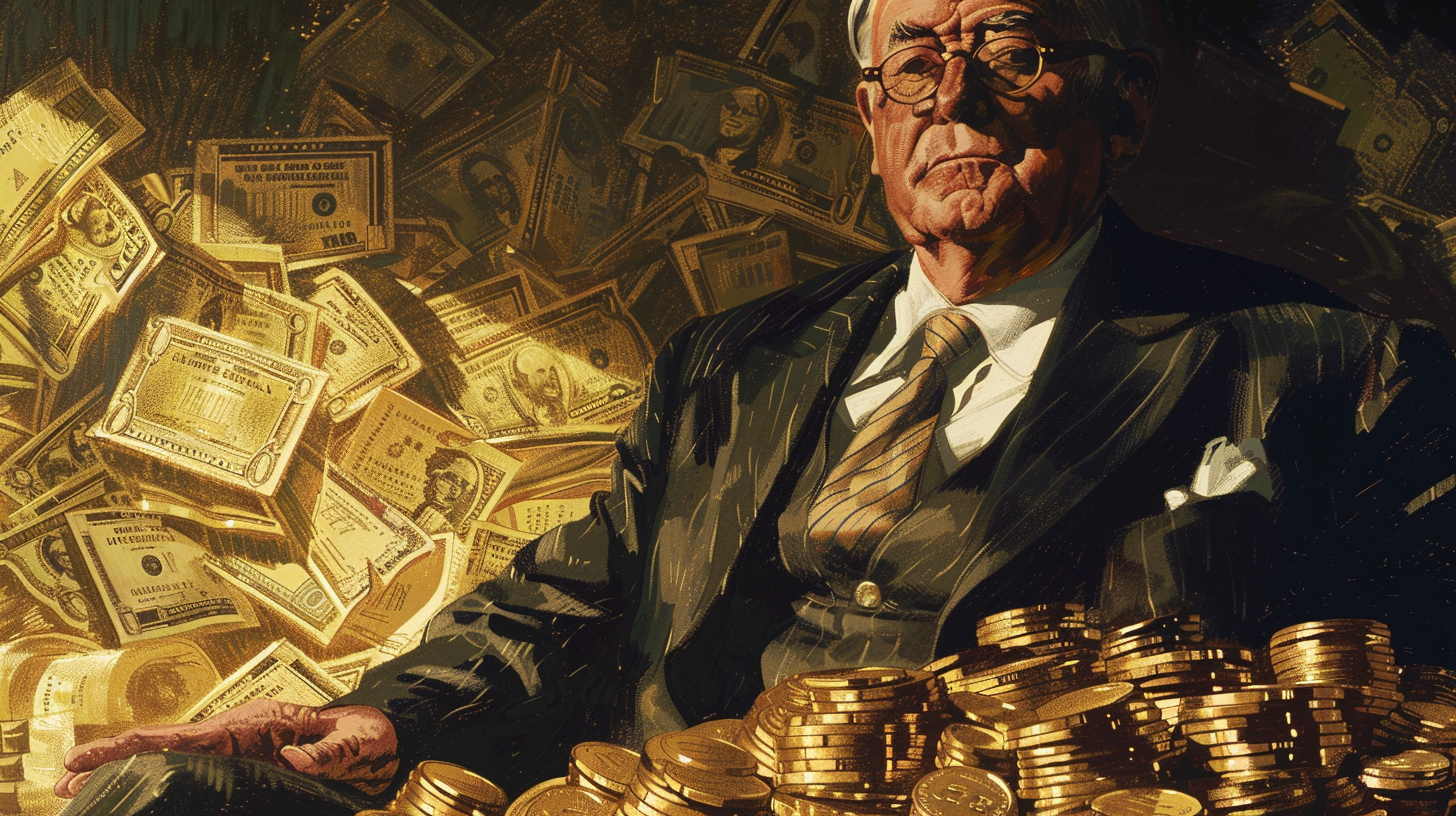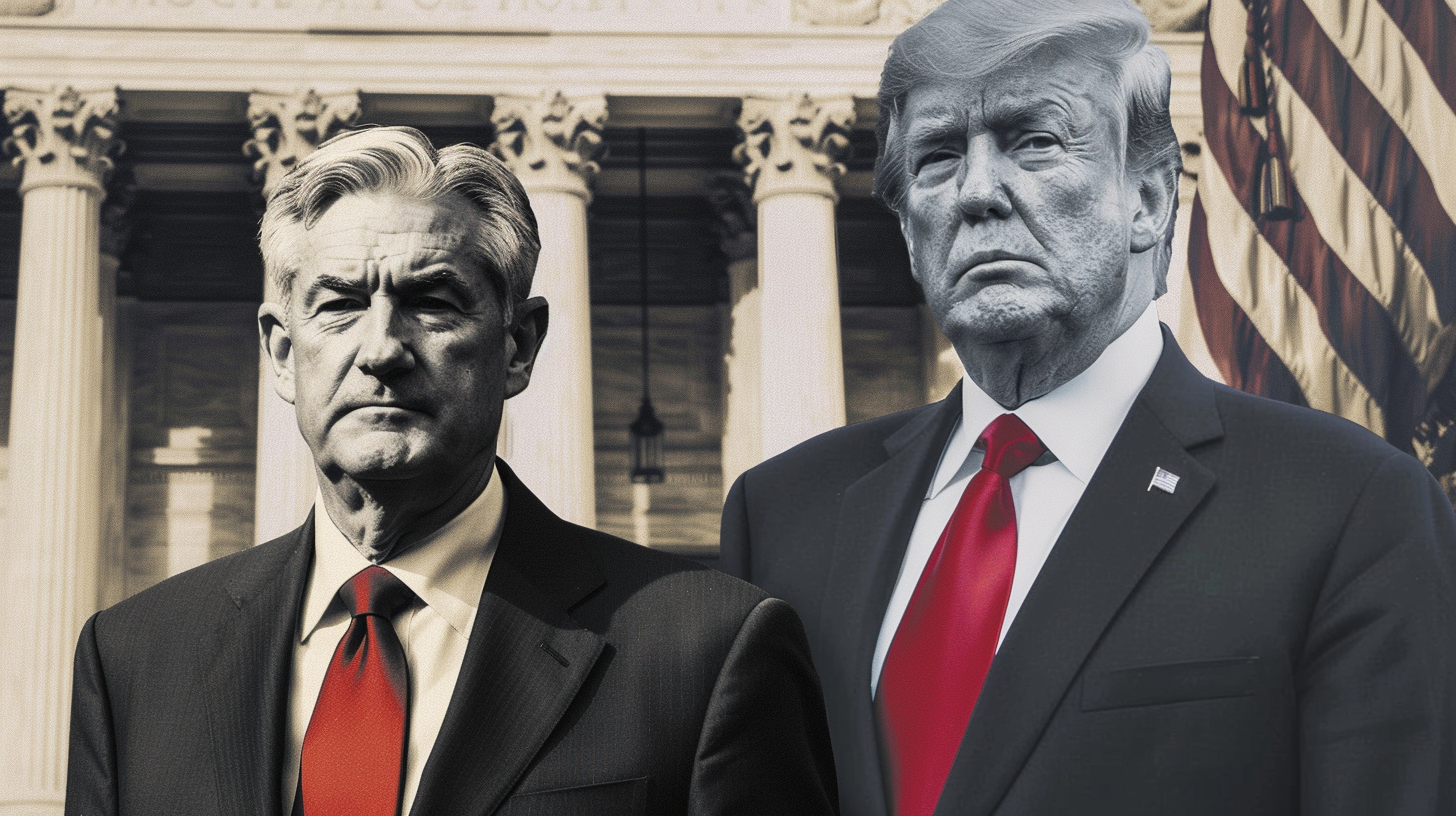Why Central Banks Make a Mess of Inflation Targeting
 Alasdair Macleod has over 40 years’ experience in fund management, corporate finance and investment strategy. He believes government monetary policies are the biggest threat to our financial savings and independence. As head of Research at Goldmoney, Alasdair helps everyday consumers understand the benefits of using gold as both money and a store of value.
Alasdair Macleod has over 40 years’ experience in fund management, corporate finance and investment strategy. He believes government monetary policies are the biggest threat to our financial savings and independence. As head of Research at Goldmoney, Alasdair helps everyday consumers understand the benefits of using gold as both money and a store of value.
We are all too aware of monetary policy and its objectives of targeting both moderate inflation and full employment at the same time. We are of course talking about price inflation, monetary inflation being the means of achieving the objective.
Central bankers don’t seem to understand that these objectives are incompatible, and here’s why. When you expand the quantity of money or credit, you debase the savings and wages of everyone, with two general exceptions. If the Fed expands the quantity of cash, or narrow money, the banks benefit, and in all likelihood they pass this benefit on to the government by spending it on new government debt. If the banks expand the quantity of bank credit, they benefit their favorite customers, who are usually big business. To believe otherwise is to subscribe to a law of financial perpetual motion, which is simply impossible.

Ignoring the wealth transfer effect is the problem of which no central planner seems to be aware. They have all been taught macroeconomic theory which simply states that if you expand the quantity of money you will generate an increase in the general level of prices. It is obviously true, that there is a connection between the two inflations. They have also been taught that a rise in prices stimulates demand. No, it doesn’t, which will become obvious shortly.
It seems incredible that central planners fail to understand that by debasing everyone’s wages and savings, they think their policies will stimulate the economy. The true relationship between the expansion of money, credit, and prices was famously described by John Law’s banker, Richard Cantillon in about 1730. Cantillon observed how price inflation progressed, with prices increasing as a result of the new money being spent, but only on the goods bought with it to begin with. As the new money becomes fully absorbed into the economy, the prices of increasing numbers of goods rise, until one can say the general level of prices has risen.
If you work for an investment bank, you will benefit in terms of salary and bonuses from an increase in the level of financial activity, reflecting monetary expansion. Your spending will drive up prices in the cities which have financial centers, and this is why New York and London are relatively expensive. People owning financial assets benefit as well, particularly when the central bank depresses interest rates.
If on the other hand, you are a factory worker on a fixed wage or a pensioner on a fixed pension, you find prices have risen but not your income. You become poorer while the banker becomes richer. Wealth is transferred from Main Street to Wall Street.
The desired effect of monetary inflation is scuppered by the Cantillon effect, with the vast majority of the population made poorer, and only those working in finance or owning property and stocks, benefiting. Far from stimulating the economy, monetary inflation destroys the population’s ability to spend in real terms.
This brings us back to the full employment target. By making the vast majority of people worse off, monetary policy actually increases unemployment. So as the massive monetary inflation of recent years works its way into rising prices, unemployment will rise too. How any highly paid macroeconomist can believe otherwise is wholly irrational.
Get Peter Schiff’s latest gold market analysis – click here – for a free subscription to his exclusive weekly email updates.
Interested in learning how to buy gold and buy silver?
Call 1-888-GOLD-160 and speak with a Precious Metals Specialist today!




 Beneath the veneer of headline job gains, the American economy teeters on the brink: native employment dwindles as part-time and immigrant jobs surge. Government hiring camouflages looming recession warnings. Inflation and political blunders worsen the crisis, fueling public outrage at the establishment’s mishandling of the economy.
Beneath the veneer of headline job gains, the American economy teeters on the brink: native employment dwindles as part-time and immigrant jobs surge. Government hiring camouflages looming recession warnings. Inflation and political blunders worsen the crisis, fueling public outrage at the establishment’s mishandling of the economy. On April 5 1933, Franklin D. Roosevelt abandoned the gold standard, wielding questionable legal power amidst America’s dire economic depression. His whimsical approach to monetary policy, including coin flips and lucky numbers, unleashed unprecedented inflation and price increases that have since amounted to nearly 2500%. Our guest commentator explores this tragic history and the legacy […]
On April 5 1933, Franklin D. Roosevelt abandoned the gold standard, wielding questionable legal power amidst America’s dire economic depression. His whimsical approach to monetary policy, including coin flips and lucky numbers, unleashed unprecedented inflation and price increases that have since amounted to nearly 2500%. Our guest commentator explores this tragic history and the legacy […] Welcome to the world of modern economics where the term “inflation” no longer signifies the increase in the quantity of money, but has evolved into a plethora of buzzwords. From “shrinkflation” to “greedflation,” these new terms and semantic shifts are by no means harmless but a manipulation of popular sentiment. Von Mises said they play […]
Welcome to the world of modern economics where the term “inflation” no longer signifies the increase in the quantity of money, but has evolved into a plethora of buzzwords. From “shrinkflation” to “greedflation,” these new terms and semantic shifts are by no means harmless but a manipulation of popular sentiment. Von Mises said they play […] Assuming CPI measurements are not understatements, the dollar’s value has plummeted by a staggering one-fifth since 2020, yet, rather than acknowledging its role in fueling this economic turmoil, the Biden administration deflects, casting capitalism and corporate greed as the villains. The latest February CPI data show more signs of the upcoming inflation bloodbath.
Assuming CPI measurements are not understatements, the dollar’s value has plummeted by a staggering one-fifth since 2020, yet, rather than acknowledging its role in fueling this economic turmoil, the Biden administration deflects, casting capitalism and corporate greed as the villains. The latest February CPI data show more signs of the upcoming inflation bloodbath. The Federal Reserve is often viewed as a neutral guardian of the economy, tasked with safeguarding employment and ensuring stable prices. However, the Fed is run by individuals who, like anyone else, are swayed by certain motivations. Do the people behind the Fed truly have the incentive to remain impartial? Our guest commentator demystifies the […]
The Federal Reserve is often viewed as a neutral guardian of the economy, tasked with safeguarding employment and ensuring stable prices. However, the Fed is run by individuals who, like anyone else, are swayed by certain motivations. Do the people behind the Fed truly have the incentive to remain impartial? Our guest commentator demystifies the […]